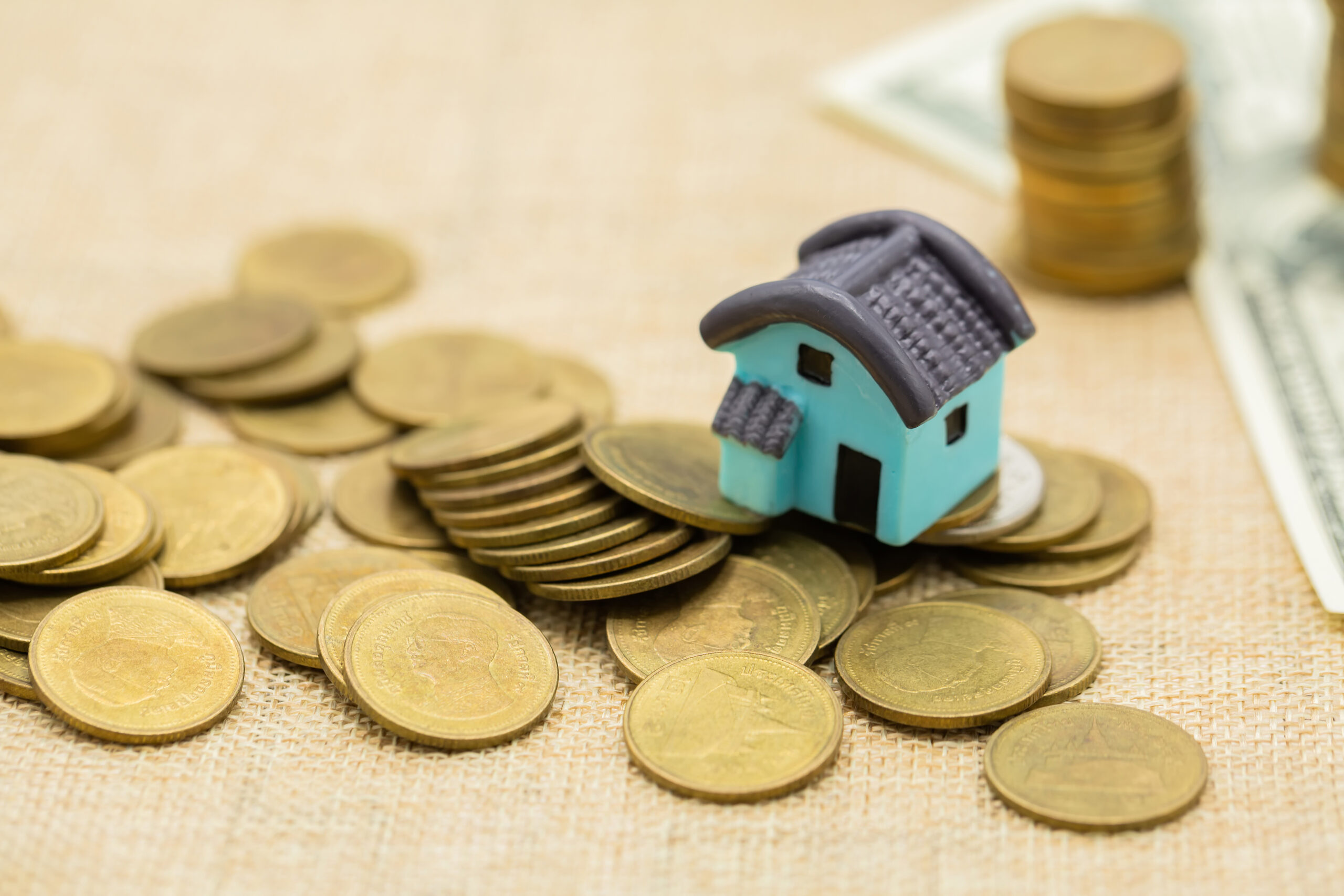As the global economy experiences fluctuations and uncertainties, many homeowners and prospective buyers find themselves concerned about their mortgage payments. A recession can have significant impacts on the housing market, mortgage rates, and overall financial stability. However, the good news is that there are proactive steps you can take to recession-proof your home loan, ensuring that you maintain financial security even during tough economic times.
In this article, we will discuss practical strategies to help you recession-proof your home loan. These strategies focus on reducing financial risks, managing your mortgage more effectively, and ultimately safeguarding your home and investment. Whether you’re refinancing, securing a fixed-rate mortgage, or building equity, these tips will guide you in strengthening your financial position.
Ready to take action? Learn how to pay off your home in 5 years or less without changing your lifestyle by joining the 5-Day Cashflow Empire Live event today!
Understanding the Risk of Recession and Its Impact on Home Loans

A recession is typically characterized by a period of economic decline, which can affect various sectors, including housing and real estate. As unemployment rates rise and consumer spending drops, the housing market may see slower sales, and mortgage rates may fluctuate. These changes can lead to difficulties for homeowners trying to stay afloat with their mortgage payments.
During a recession, here are some of the ways your home loan can be impacted:
- Higher interest rates: Mortgage rates can rise, making it more expensive to take out a loan or refinance your existing one.
- Decreased home values: Economic downturns often result in lower home prices, meaning you may find yourself owing more than your home is worth if you have an adjustable-rate mortgage (ARM) or if your equity declines.
- Job loss or income instability: Uncertainty in the job market can affect your ability to keep up with mortgage payments, especially if your income is reduced or lost entirely.
These factors make it essential to take proactive measures to recession-proof your home loan.
Tip: If you’re worried about rising mortgage payments or interest rates, check out how you can eliminate years of mortgage debt by joining the 5-Day Cashflow Empire Live event.
How to Recession-Proof Your Home Loan: Key Strategies
Refinance for Better Terms
Refinancing your home loan can be an excellent strategy for saving money and reducing your financial burden during a recession. By refinancing, you may be able to lower your interest rate, extend the term of your loan, or switch to a different loan type that is more beneficial in uncertain economic times.
Here are some benefits of refinancing during a recession:
- Lower interest rates: If you are able to refinance during a period when interest rates are low, you can significantly reduce your monthly mortgage payments.
- Consolidation of debt: Refinancing can also be an opportunity to consolidate other high-interest debts (like credit card balances) into your mortgage, reducing your overall financial obligations.
- Switch to a fixed-rate mortgage: If you currently have an adjustable-rate mortgage (ARM), refinancing can allow you to switch to a fixed-rate mortgage, offering more stability and predictability.
Before deciding to refinance, it’s important to evaluate the costs involved, such as closing costs and fees, to ensure it’s the right move for your situation.
Choose a Fixed-Rate Mortgage
During a recession, the housing market can be volatile, and interest rates may rise or fall unpredictably. Choosing a fixed-rate mortgage (FRM) can provide financial security by locking in a steady interest rate for the life of the loan.
With a fixed-rate mortgage, you can rest assured knowing that your interest rate and monthly payments will remain the same, regardless of fluctuations in the economy. This stability makes it easier to budget and plan long-term.
If you have an adjustable-rate mortgage (ARM), you might want to consider refinancing into a fixed-rate mortgage to protect yourself from future rate increases.
Pay Down High-Interest Debt
One of the best ways to recession-proof your home loan is to reduce your overall debt load, especially high-interest debt. This includes credit card debt, personal loans, and any other outstanding balances that could weigh you down financially.
Here’s how paying down high-interest debt can help with your home loan:
- Lower your debt-to-income ratio: Mortgage lenders use your debt-to-income (DTI) ratio to assess your ability to repay loans. By paying down high-interest debt, you reduce your DTI, which may qualify you for better loan terms or even allow you to refinance.
- Increase cash flow: Reducing debt means more disposable income each month. This can make it easier to cover your mortgage payments, even if your income is temporarily reduced during a recession.
If you’re feeling overwhelmed by debt, consider working with a financial advisor to create a debt repayment plan that works for you.
Want to learn how to pay off your mortgage in just 5 years? Join the 5-Day Cashflow Empire Live for personalized strategies.
Considerations Before Taking on a Home Loan in a Recession

Before securing a mortgage, especially during a recession, it’s important to consider several factors that can affect your financial well-being.
Assess Your Job Security and Financial Situation
The economic uncertainty during a recession can make it more difficult to predict the future of your income. If you’re considering buying a home or refinancing during a recession, assess your job security and financial situation first.
Questions to ask yourself:
- Do you have an emergency savings fund in place?
- Are you confident in the stability of your current job or business?
- How would you cope with a potential loss of income or reduced hours?
If you’re uncertain about your financial situation, it might be a good idea to delay taking on a new mortgage until you have a better sense of stability.
Focus on Your Credit Score
A strong credit score is essential for securing favorable mortgage terms, particularly during a recession. Lenders are more likely to offer you a lower interest rate if you have a high credit score, saving you money in the long run.
Steps to improve your credit score:
- Pay bills on time: Timely payments contribute positively to your credit score.
- Reduce credit card balances: Aim to keep your credit utilization ratio below 30%.
- Check for errors: Regularly review your credit report for errors and dispute any inaccuracies.
Improving your credit score can have a significant impact on the interest rates and loan terms you qualify for.
Determine the Right Loan for You
Not all mortgages are created equal, and it’s important to understand the different types of loans available to you. Some loans, such as FHA or VA loans, may be more favorable for certain buyers, especially during a recession.
Consider:
- FHA loans: These loans are backed by the Federal Housing Administration and are typically easier to qualify for, with lower down payment requirements.
- Conventional loans: These loans tend to offer competitive rates and are suitable for buyers with higher credit scores.
- VA loans: If you’re a military service member or veteran, a VA loan can provide you with favorable terms, including no down payment and no private mortgage insurance (PMI).
Take action now to recession-proof your home loan by exploring the best mortgage options for you. Check out the 5-Day Cashflow Empire Live for more guidance.
Tips for Managing Your Home Loan During a Recession
Even if you’ve taken steps to recession-proof your home loan, it’s important to continue managing your mortgage effectively during uncertain times.
Build and Maintain an Emergency Fund
One of the most important things you can do to recession-proof your home loan is to build and maintain an emergency fund. Ideally, this fund should cover at least 3-6 months of living expenses, including your mortgage payments.
An emergency fund can act as a buffer in case of unexpected events, such as job loss or medical emergencies, allowing you to continue making mortgage payments even during tough times.
Be Aware of Loan Modifications and Forbearance Programs
If you’re struggling to make mortgage payments during a recession, many lenders offer loan modification or forbearance programs. These programs can help temporarily reduce or suspend your mortgage payments without negatively impacting your credit score.
Before pursuing a forbearance program, make sure to fully understand the terms and conditions. In some cases, missed payments may be added to the back end of your loan, leading to higher payments in the future.
Stay Informed on Mortgage Relief Options
During a recession, there are often government-backed mortgage relief options available. For example, the Home Affordable Refinance Program (HARP) was created to help homeowners refinance their mortgages if they owe more than their home is worth. Check with your lender or a financial advisor to explore available options.
The Role of Home Equity in Protecting Your Loan
As you pay down your mortgage, you build equity in your home. This equity can serve as a financial cushion during tough times, helping you protect your investment and potentially provide opportunities to improve your financial situation.
Leveraging Home Equity to Maintain Financial Flexibility
If your home’s value increases or if you’ve paid down a significant portion of your mortgage, you may be able to leverage your home equity for other financial needs.
Home Equity Lines of Credit (HELOC) as a Safety Net
A Home Equity Line of Credit (HELOC) is a revolving line of credit that allows you to borrow against the equity in your home. This can be useful during a recession if you need quick access to cash for emergencies. However, it’s important to use a HELOC responsibly to avoid accruing too much debt.
Recession-Proofing Your Home Loan: The Long-Term Benefits
By recession-proofing your home loan, you not only protect your home during tough economic times but also set yourself up for long-term financial success.
Building Wealth Through Homeownership
Managing your home loan effectively, even during a recession, can lead to long-term wealth through property appreciation and equity growth. Homeownership remains one of the best ways to build wealth over time.
Financial Peace of Mind in Uncertain Times
By following the strategies outlined in this article, you can gain peace of mind knowing that you’ve taken the necessary steps to recession-proof your home loan. This stability will allow you to focus on your long-term goals without the constant worry of mortgage payments during tough times.
Conclusion
Recession-proofing your home loan requires proactive steps to manage your finances effectively. Whether you refinance, opt for a fixed-rate mortgage, or focus on debt reduction, these strategies will help ensure your financial security. By taking action now, you can prepare for whatever the future holds.
Want to take control of your financial future and eliminate debt faster? Join the 5-Day Cashflow Empire Live to learn how to pay off your mortgage in 5 years or less and secure long-term financial freedom.
Ready to take charge of your home loan and create a custom 5-year mortgage payoff plan? Click here to start.
Affiliate Disclaimer: BestMortgages.co may include affiliate links, which allow us to earn a small commission when you make a purchase through them. This helps support our site at no extra cost to you. Thank you for your support!




0 Comments